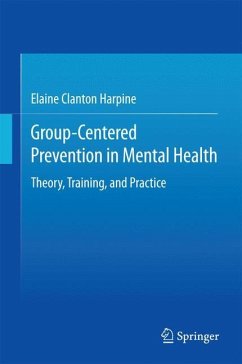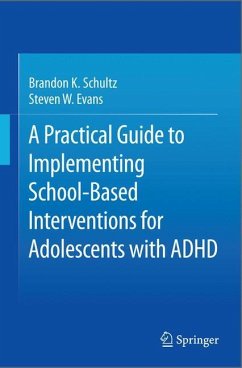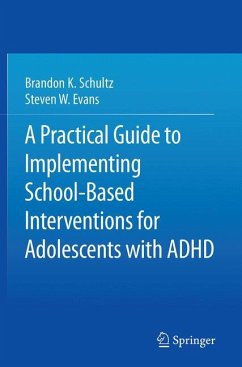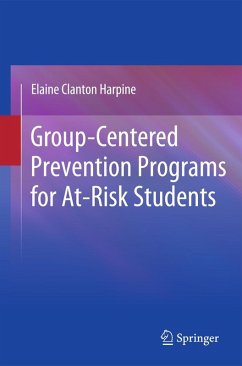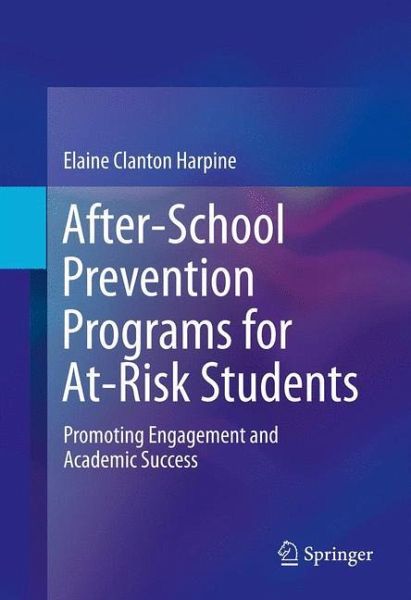
After-School Prevention Programs for At-Risk Students
Promoting Engagement and Academic Success
Versandkostenfrei!
Versandfertig in 6-10 Tagen
39,99 €
inkl. MwSt.
Weitere Ausgaben:

PAYBACK Punkte
20 °P sammeln!
After-School Prevention Programs for At-Risk Students offers professionals a detailed framework for developing and enhancing after-school programs. Emphasizing a prevention focus and a group-centered interactive approach, the book's year-long model combines education and counseling, incorporating key therapeutic objectives to foster academic and behavior skills and reduce problems in and outside class. Practical step-by-step guidelines for creating and implementing programs include clear rationales, instructive design and case examples, and ready-to-use interventions. The author also provides ...
After-School Prevention Programs for At-Risk Students offers professionals a detailed framework for developing and enhancing after-school programs. Emphasizing a prevention focus and a group-centered interactive approach, the book's year-long model combines education and counseling, incorporating key therapeutic objectives to foster academic and behavior skills and reduce problems in and outside class. Practical step-by-step guidelines for creating and implementing programs include clear rationales, instructive design and case examples, and ready-to-use interventions. The author also provides guidance on developmental, gender, and cultural considerations, the challenges of maintaining progress over the course of the school year, and the handling of severe learning and emotional problems.
Among the topics covered:
Organizing a group-centered after-school program.Combining learning and counseling into one curriculum.The role of motivation in an ongoing year-long program.Group process, self-efficacy, cohesion: applying the principles of change.Interaction in a year-long program.Solving problems and conflicts.
After-School Prevention Programs for At-Risk Students is an essential reference for scientist-practitioners, clinicians, and academics in such disciplines as school psychology, childhood education, social work, psychotherapy and counseling, and learning andinstruction.
Among the topics covered:
Organizing a group-centered after-school program.Combining learning and counseling into one curriculum.The role of motivation in an ongoing year-long program.Group process, self-efficacy, cohesion: applying the principles of change.Interaction in a year-long program.Solving problems and conflicts.
After-School Prevention Programs for At-Risk Students is an essential reference for scientist-practitioners, clinicians, and academics in such disciplines as school psychology, childhood education, social work, psychotherapy and counseling, and learning andinstruction.





